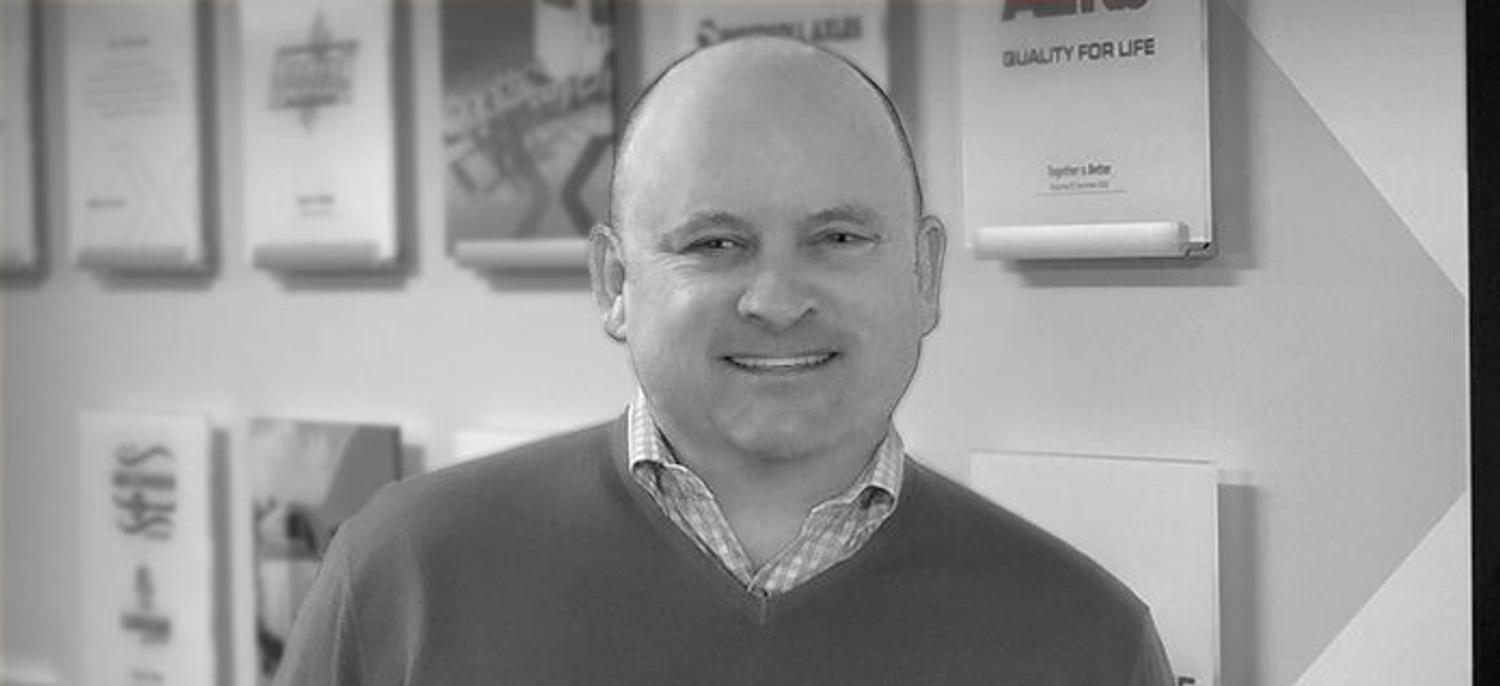Interviewed by Kevin O’Neill
Q&A with Fred Bentley
Fred Bentley, president and CEO of DexKo Global — the leading manufacturer of axles, chassis, and other components for RV, trailer, and towable equipment manufacturers — has significant experience leading teams and growing businesses. An industrial engineer by trade, Fred has worked with world-class brands including Frito-Lay, AlliedSignal, and Hayes Lemmerz.
At each organization, Fred gained crucial knowledge that helped him become the leader he is today. At Frito-Lay, he learned what great talent means, what great performance looks like, and what high expectations are. His next chapter at AlliedSignal taught him how to be a strong manager. During his time at Hayes Lemmerz, he learned how to handle the complexities that accompany managing a team as a global leader.
This unique career path gave him all the building blocks to eventually take on the role of CEO of Maxion Wheels and to then become a board member of Dexter Axle. Eventually, he earned the role of president and CEO of DexKo Global, a KPS Capital Partners portfolio company.
Over the decades, Fred has become well-versed in what it takes to become a great leader. Here are a few of the things he's learned along the way about leadership that you can take with you as you step in to lead global and private equity-backed companies.
Brilliant mentors create strong leaders
Fred: At every organization I’ve been a part of, I’ve been fortunate to have mentors who showed me what success meant and who took an interest in my own success. They made me realize that surrounding myself with great people would help me be successful.
There’s no shame in seeking guidance. If I look back at myself 20 years ago, the most important thing was me — and the most important answer was mine.
Today, I am much better at what I do because of my support network. I have a large group of people whom I can reach out to for guidance, almost regardless of the problem I face. Most of these people have already been through the challenges I’m facing, and their advice helps me be more successful.
When I first started at Maxion (Hayes Lemmerz at the time), the company had just gone through a Chapter 11 restructuring. The only reason the company existed was because of its international piece, so I relocated to Germany. I was a 35-year-old kid who was brought in to replace the person who had run the business for years. I had the weight of the company and its 7,000 employees on my shoulders, but the CEO at the time had enough confidence in me to give me the opportunity to be a leader.
He sent me to the Harvard Business School Advanced Management Program as preparation, and he was always available to answer questions and provide guidance when I needed it. Without someone giving me that chance, it’s unlikely I would have been where I am today — or that I would have been able to solve the complex problems I’ve been faced with over the years.
Overcoming the challenges of global leadership
Fred: Leading in a global environment adds complexities not common in your typical enterprise. An international business often requires you to juggle more balls at once than if you were managing an organization based in a single country. Some leaders can get caught up in those variables, distracted by all the changes thrown at them at once.
The key is to have a clear vision of where you want to go from the beginning.
If you’re not certain about where you want the company to go, you may not be able to handle all the changes along the way. But if you have a clear vision of the future, you can pivot and adapt.
The second component is to build a great team and empower it to achieve your vision. As you’re building your team, it’s important to hire people who are as excited and invigorated by taking on challenges as you are. You and your team members should wake up every morning eager to find new opportunities to learn and grow.
When I started at DexKo, the first thing I did was ensure the entire team was aligned. I created a 30-, 90-, and 180-day plan, and I specifically targeted the most difficult tasks to tackle first. This wasn’t easy, but it was achievable with a talented and experienced team of people who were eager to take on challenges.
Leading in a private equity environment
Fred: Alignment isn’t just crucial between teams within the same organization — it’s also important that all external stakeholders are on the same page. This is particularly true in a private equity environment.
One of the biggest advantages of running a private equity company is that there is typically only one owner. In the PE world, this can create an environment of perfect alignment with the owner — and it's critical for the leader to take advantage of this opportunity.
By getting this perfect alignment, the leader can then focus the organization on what's most important. It makes growing the business or improving the results easier because there is much less room for distractions.
Finally, speed is also critical in a PE environment. You must be ready to be decisive and take action because owners want to see a return. They typically have invested a lot of money betting on the leader, and things tend to work out better when there is strong alignment. You're more likely to achieve success if you focus on execution and move with urgency.
What defines a brilliant person at work
Fred: Brilliant leaders provide opportunities, creating an environment where people can become better and smarter. They also realize that a great environment matters, which means they're continuously working to develop a place that allows their people to achieve the best results.
These leaders focus on the present and the future at the same time: They have a vision for the future in mind, but they know what to do in the here and now to achieve that goal.
And although they may be brilliant themselves, the best leaders don’t care whether they’re the smartest person in the room — they just want to be surrounded by other brilliant people. Instead of wasting time worrying about whether they’re the smartest one at the table, good leaders focus on how they can learn from others on the team to achieve results.
Bringing out the best in teams
Fred: Companies are nothing without brilliant teams, and it’s every leader’s responsibility to inspire and empower those teams.
The first step is critical: Find people who want to be successful. If they want to win, you’ve already won half the battle.
Once you have a brilliant team in place, give them big goals and the ability to take ownership of projects. When they win, recognize those wins. If they’re off track, help them get back on track so they can continue winning.
Organizations are going to shift, and the best leaders and team members will embrace this change and view it as an opportunity to grow. When DexKo acquired 16 companies in just three years, many people in the organization took on bigger roles with more responsibility. Individuals who saw the opportunity at DexKo to grow and be part of a group that’s winning are now developing great careers.
Companies are nothing without their teams, and brilliant leaders cultivate brilliant teams. One cannot exist without the other, but amazing things can happen when strong teams work together toward a common vision.
Defining brilliance with Fred
| Purpose is... | how one finds joy in doing something. |
| Leadership is... | creating an environment where people can be great. |
| Brilliant leaders are... | rare. The best leaders look for unique opportunities for everybody to win. |
| Success is... | an outcome of making a difference. |
| I perform at my best when... | I am presented with an opportunity to meet an interesting challenge surrounded by great people. |
Never miss insights
Stay in the know with our thought leadership
Kevin's thinking
Leadership
The Value Multiplier: Why Private Equity's Best CEO-OP Partnerships Start with the Right CFO
Jul 21, 2025

Sports & Entertainment
How Top CROs Are Unlocking New Revenue Streams in Sports – with Data and Collaboration
May 05, 2025

#BrilliantPeopleAtWork
Marc Jourlait: Riverside Operating Partner on the Journey and Joy of Fixing Broken Businesses
Oct 06, 2023

